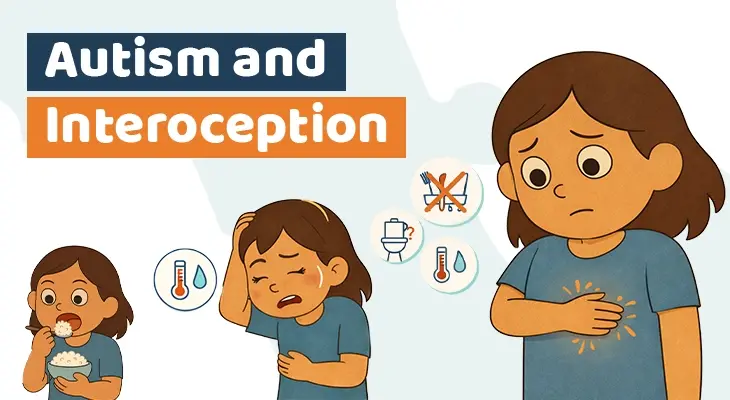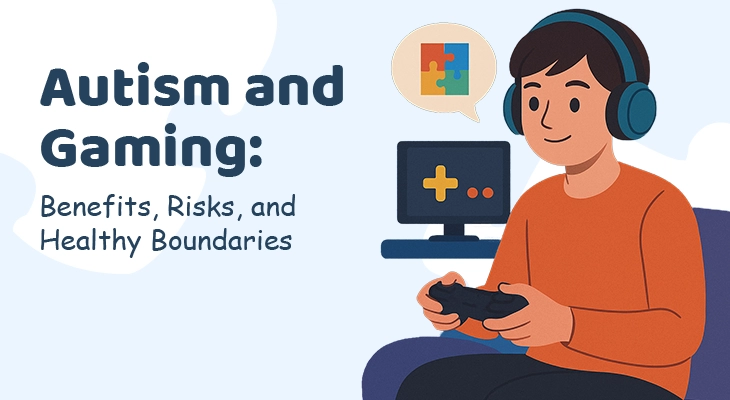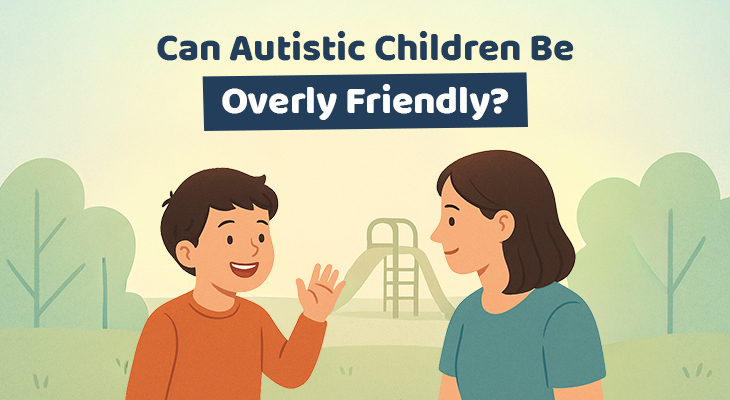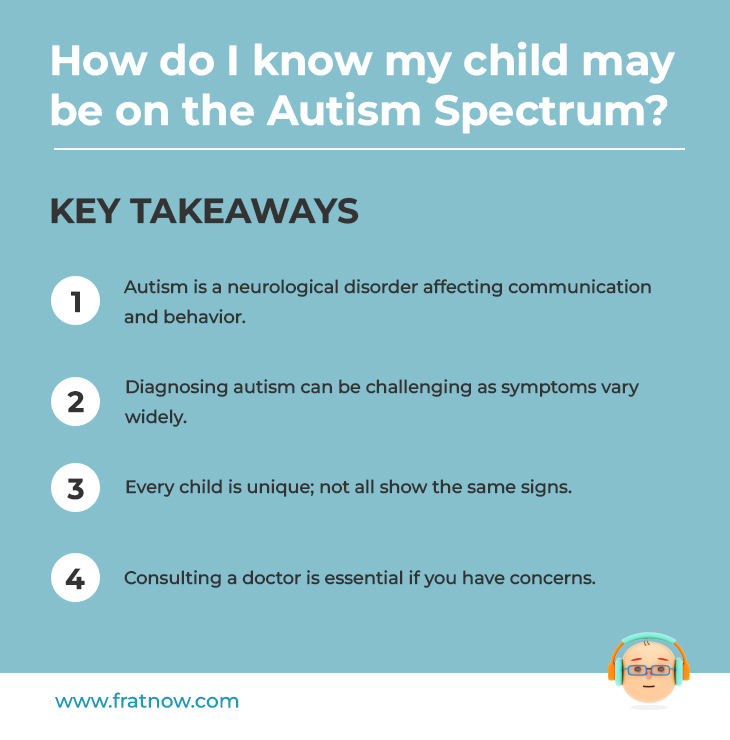
Download Download & share this Knowledge card in your network [Free Download]
Table of Contents
- Introduction
- Lack of or Delay in Language Skills
- Repetitive Use of Language and/or Motor Mannerisms
- Poor Eye Contact
- Lack of Interaction with Other Children
- Preference for Isolation
- Obsessive Interest in One Topic
- Inconsistent Responses to People
- Conclusion
- Did You Know About Folate Receptor Autoantibodies (FRAAs) and Brain Development?
Introduction
Are you concerned that your child may be on the autism spectrum? Autism is a neurological disorder that affects communication and behavior, and it can be difficult to diagnose.
It is important to keep in mind that every child is unique and displays different symptoms, so it is best to consult with your doctor if you are concerned about your child’s development.
In this blog post, we will discuss 7 common signs that may indicate your child is autistic. Keep reading to learn more.
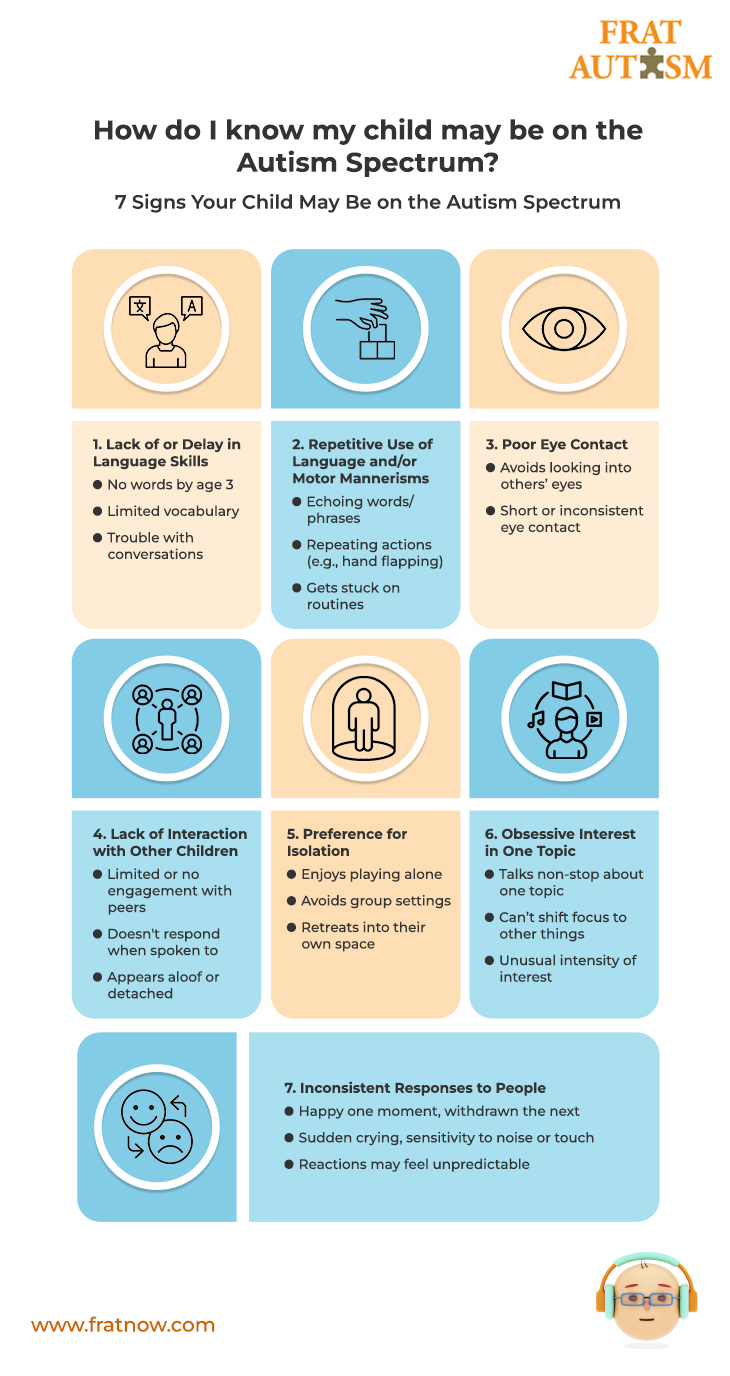
Download Download & share this Knowledge card in your network [Free Download]
1. Lack of or Delay in Language Skills
One of the most common signs that your child may be autistic is the lack of or delay in language skills. If your child has not developed any language by age three or has a limited vocabulary even at an older age, this can be a red flag.
Similarly, if your child has difficulty responding to questions or carrying on a conversation, this could also signal an issue.
It’s perplexing and concerning when a child cannot communicate their needs, wants, and feelings and it can leave parents feeling uncertain and anxious. If you suspect your child may have a language delay or disorder, it’s important to seek out help from professionals who can assess the situation and provide guidance on how best to support your child.
2. Repetitive Use of Language and/or Motor Mannerisms
Have you noticed your child repeating words or phrases, or repeating specific actions? This is one of the key signs of autism.
Repetitive speech or behavior is common in children with autism and can range from mild to severe. For example, your child may repeat certain words or phrases multiple times, or they might engage in the same activity over and over again.
In some cases, this repetitive behavior can be so extreme that it disrupts everyday activities or interferes with their ability to learn new things. If your child exhibits this kind of behavior, it may be worth discussing it with a healthcare professional to see if they have autism.
3. Poor Eye Contact
It can be bewildering when your child avoids making eye contact. Does it mean they are feeling shy or is something else going on? Autistic children often have difficulty making eye contact, especially if they are feeling overwhelmed or anxious.
This behavior can manifest as either a lack of eye contact altogether or brief, bursty moments of eye contact followed by sudden avoidance. If you notice this behavior in your child, it could be a sign that they are on the spectrum.
4. Lack of Interaction with Other Children
Parents can be perplexed to find that their child has difficulty interacting with other children, or exhibits an indifference towards them.
This lack of social interaction may seem surprising, especially if the child is verbal and speaks fluently. It’s important to note that just because a child can speak, doesn’t mean they understand social interactions.
Children with autism may not respond when someone speaks to them, show an absence of facial expressions, and might not seek out interactions with other children. They may also appear ‘aloof’ and not be interested in any kind of communication, physical or verbal. If your child displays these behaviors, it could be a sign of autism and should be discussed with your doctor.
5. Preference for Isolation
Many parents of children with autism report that their child will often avoid social interaction and prefer to be alone. This preference for isolation is not an easy sign to recognize in the beginning, but it can become more evident as time passes.
It is perplexing to watch as your child retreats from people and social situations, seemingly without reason. You may observe them preferring to play alone or stay in their own space rather than joining in with others.
If this behavior persists, it could be a sign of autism and it’s important to take note of it. As your child grows, try to make sure they have opportunities to socialize and develop relationships with other children.
6. Obsessive Interest in One Topic
As parents, it can be confounding to watch our children become obsessed with a certain topic. Whether it’s the same story, song, toy, or game, children with autism may become fixated on one thing for an extended period.
They may even burst out with random facts about it and talk about it non-stop. It can be hard to get them interested in other topics, and they may appear disengaged from conversations about anything else. If you find yourself dealing with this issue, take note and speak to your child’s doctor for advice on how to handle it.
7. Inconsistent Responses to People
It can be incredibly perplexing when your child seems to display inconsistent reactions to people around them. In one moment, they may be gregarious and animated with a particular person, then the next moment they are disinterested or even fearful.
Bursting into tears for no obvious reason, or being overly sensitive to noise and touch, can also be signs of autism. Many autistic children have difficulty managing the sensory overload of an environment full of different people and this can result in these seemingly inexplicable changes in behavior. If you find your child is displaying any of these behaviors, it is important to seek advice from an expert.
Conclusion
Autism Spectrum Disorder (ASD) is a developmental disorder that affects how a person communicates and interacts with others. It can be difficult to know if your child is on the autism spectrum, as signs of ASD can be subtle or even go undetected. However, recognizing the signs of autism early can help your child get the proper diagnosis and treatment they need.
For information on autism monitoring, screening and testing please read our blog.


